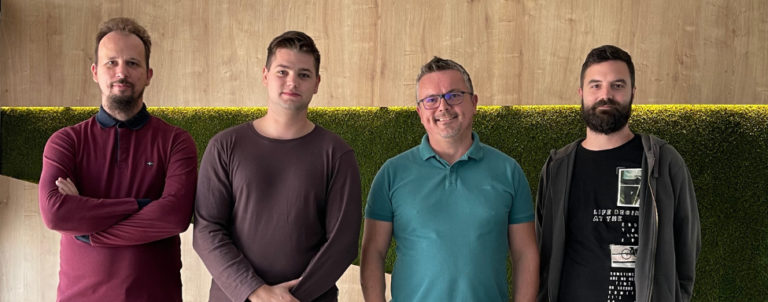One of the famous mysteries that troubles many people is how to get a job. There are plenty of articles on how to write a successful CV, cover letter or how to present yourself to employers. But, are these tips always applicable and universal – no matter the job you’re applying to? As a part of the human resources team, I am writing about the tips that might be useful when applying for a job at Inchoo.
We receive job and intern applications on a daily basis. Each application is thoroughly examined and evaluated; we make sure that everyone gets feedback. Thereat, we avoid generic responses, especially when it comes to rejections (depending on the application, we offer useful advice, recommendations on what to learn etc.) and try to approach everyone individually. If we notice that candidate might have a specific skill we’re looking for, he seems interesting or we see some kind of potential, we call him over for an interview – this is the ideal, but not a very common situation.
Usual advice you find on the Internet and is it true
People looking for a job often look for advice on the Internet. Searching for those pieces of advice myself, I noticed a repetition, especially of the ones below. To me, they even sound like cliches:
- write an awesome CV and cover letter
- make no spelling mistakes
- point out work experience
- point out skills
- be communicative
- research the company
- learn how to “sell yourself”
- make good first impression
- be convincing
The truth is everything above is important, but certainly not crucial for getting the job. There is no universal set of skills or things that guarantee that. Therefore, if you wrote an excellent CV, sent an e-mail without any mistakes, have lots of working experience and know how to introduce yourself well, it doesn’t necessarily mean you will get a job. Not a few candidates, in their first e-mail, write only a sentence or two about who they are and don’t even attach their CV but still make sure to include their well written code. They have an opportunity to come for an interview. Why? Because in our terms “communicative” doesn’t mean a person who is a social butterfly but a person who is able to speak effectively with colleagues and clients and, as it may be said, “learn their language”.
We read a lot of applications – here’s what counts
When it comes to experience, it doesn’t always relate to months or years of official working experience. It relates to everything you’ve done on your own, whether that’s freelancing, participating in a competition, something you’ve done for friends/relatives (for example a web site for your sister – make-up blogger) or something you’ve done just because you wanted to, for yourself. That last one shows your passion and we really love to see that.
Researching the company you’re sending a job application to is imperative and seems very logical but, believe me, is something not all people are aware of. Doing research is essential and can be a foundation of someone’s decision on whether to apply or not. There was a situation when a person on a job interview said he knew nothing about Inchoo because he couldn’t find it on Google. On our inchoo.hr website, there is always a list of active job openings and descriptions of people we’re looking for. For example, on our backend developer job opening (position where we, only this year, hired 9 people out of which 5 were interns), we emphasize the slogan “show me the code”, but in spite, if we look at the last 60 applications, 45% didn’t include their code.
Apart from advice we read all over the internet, I noticed similarities in applications themselves. “I learn fast”, “I adapt easily”, “I am willing to work” are some of statements I see a lot. What we appreciate is talent, prudence and honesty. It is important we feel that a person we hire would actually fit in and belong to Inchoo culture. We can’t exactly define the character and skills of a person we’re looking for but when we do find it, we simply know.
People searching for a job can think they have all that’s necessary but still don’t manage to succeed in finding it so they become discouraged. That leads us to the final thought – being rejected for one position doesn’t mean you should change for a job, but stay true to yourself. Someone somewhere will consider you ideal.



